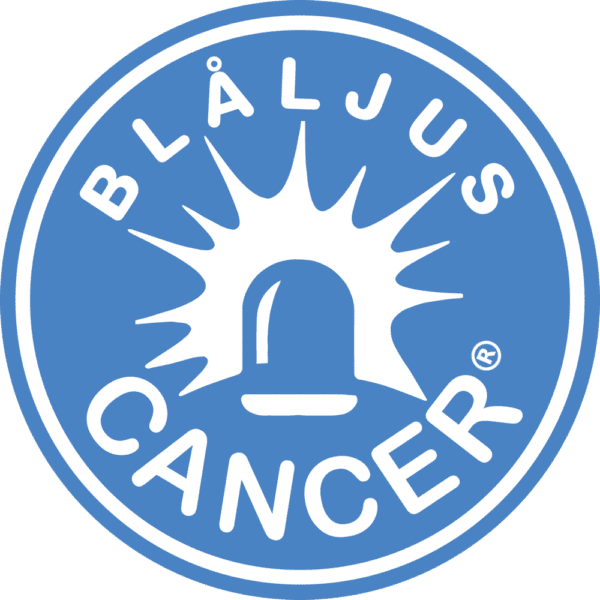

- Home »
- HomeTypes of cancer » Emergency cancer
Emergency cancer
The cancer association PALEMA has launched and trademarked the concept of “Blåljuscancer” (Emergency cancer) to call for improvements when it comes to diagnosing pancreatic cancer, liver/bile duct cancer and gastric/esophageal cancer.
The types of cancer are among the most deadly cancers. Therefore, we consider it necessary to have a fast track to treatment. An increased focus on early detection and specialized treatment is needed.
These are measures that should be obvious but need to be implemented now!
What is Emergency cancer?
An ACUTE illness that requires a FAST TRACK to the health care system and where you are treated by SPECIALISTS in the respective diagnosis!
More than half of the people currently suffering from the above types of cacner have such extensive tumor growth at the time of diagnosis that no curative treatment can be offered, only palliative.
In Sweden, the time from diagnosis to treatment is often too long, making it impossible to meet the standardized care pathway (SVF) in any of the regions. For some other types of cancer, you can attend drop-in appointments and be assessed within two weeks.
Early detection and prompt treatment is essential!
Our goal is for our types of cancer to be classified as Emergency Cancer and thus treated as emergencies.
The forgotten types of cancer
The cancers in PALEMA are sometimes referred to as ‘the forgotten cancers’ because they are relatively few in number but more deadly. The average 5-year survival rate for these types of cancer is between 8 and 25%. For several other cancers, survival rates are up to about 90%. On average, 70% of people diagnosed with cancer survive!
PALEMA cancers are difficult to detect and require early diagnosis to ensure the best possible treatment outcome. They also spread quickly and often require major medical intervention.
Unfortunately, we have seen that many people with our types of cancer have died because they had to wait for treatment.
Despite this, sadly, less research is conducted on our types of cancer compared to the most common cancer types.
What we call for
This means that a number of improvements need to be made immediately:
- Classify our types of cancer as emergency conditions.
- Faster detection of our types of cancer.
- All established diagnoses should be discussed at the national MDK (Multidisciplinary Conference) where specialists and the profession discuss treatment options.
- Our types of cancer should be treated in a few nationwide specialized centers as they often involve complicated surgery and treatments.
- The operations and treatments should be performed by specialized and certified doctors/other health professionals.
- To become certified, you must have completed specialist training.
- The patient should have a 24-hour, year-round emergency number for specialist care.
- All variables for our types of cancer should be reported to the quality register.
You can read more about each point and read about additional concerns we have in the detailed information, link below.
